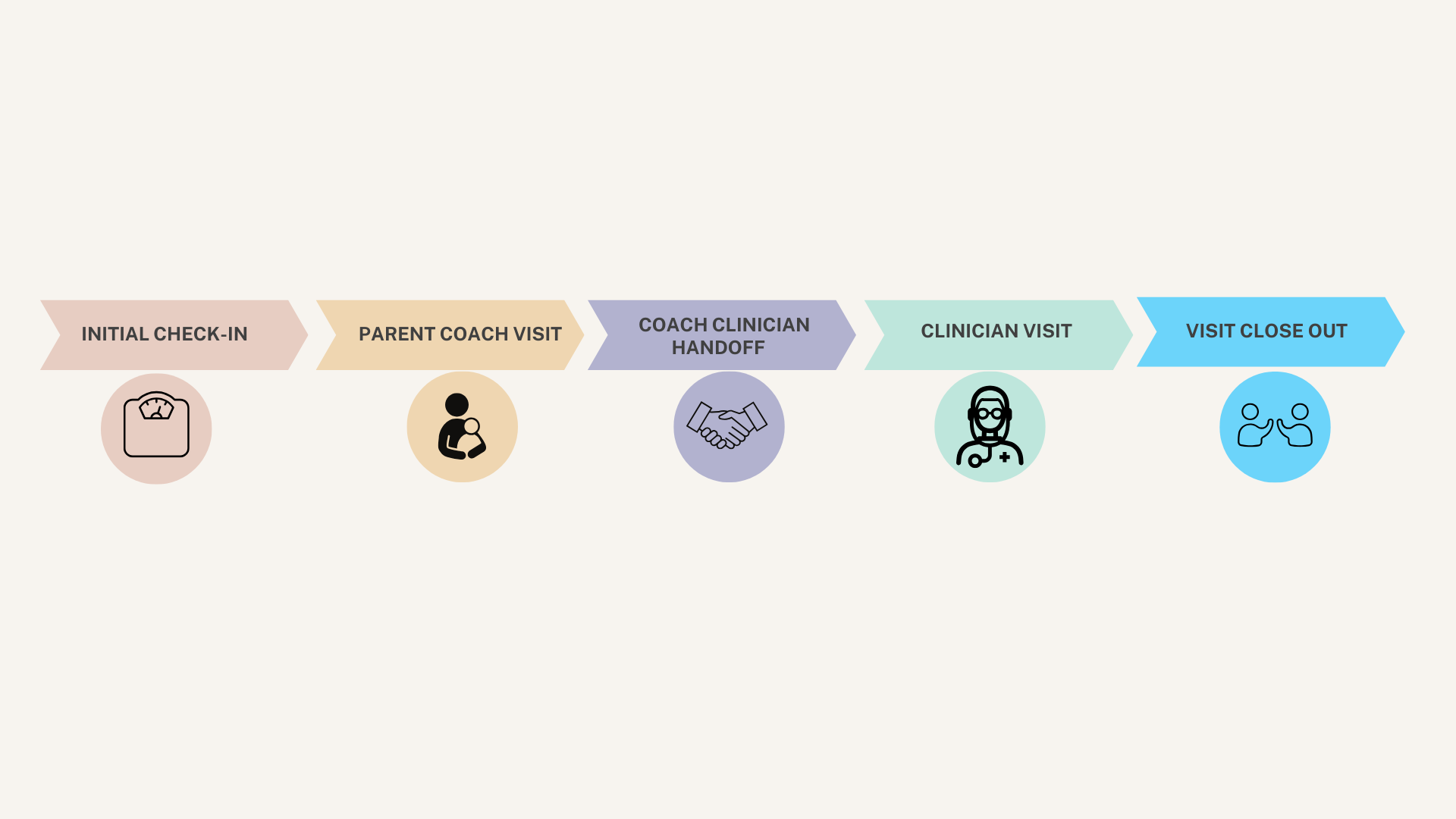
About PARENT
Why PARENT?
Why do we need a new model of pediatric preventive care?
PARENT seeks to address key gaps in well-child care (WCC) for low-income and marginalized families through relationship-based preventive care services.

What is a well-child care (WCC) visit?
These are the “check-up” visits that children have with a primary care provider. These visits are most frequent in the first few years of life and are a key opportunity to address a range of physical, developmental, behavioral, social, and psychosocial health concerns that a family may have.
Key Features of the PARENT Model of Care
The Parent Coach
The addition of the Parent Coach, a central element of the PARENT model of care, adds a much-needed member to the WCC team in the delivery of preventive care services.
Parent Coaches…
Are trusted community members who are familiar with the community and local resources.
Receive extensive training in the provision of WCC services.
Address concerns related to anticipatory guidance topics, family social and psychosocial needs, and development and behavior, and connect families to community resources.
Text Messaging System
The PARENT model of care uses a text messaging system to reinforce key education and guidance between visits.
Automated age-specific messages include:
Weekly guidance on anticipatory guidance, health education, developmental promotion tips, and visit reminders.
Helpful links to educational videos, websites, and other resources.
The Pre-Visit Screening
The PARENT model of care creates a more robust process for identifying the family’s needs by using a pre-visit screening tool during the WCC visit.
The pre-visit screening asks parents about their:
Priorities for anticipatory guidance topics
Concerns for development or behavior
Social and psychosocial needs
The Optimized Visit
The PARENT model of care creates a more family-centered WCC visit that increases the amount of time the WCC team has with the family to identify needs and build relationships, discuss key education and guidance topics, address parental concerns, and ensure connection to community resources.
Although the optimized flow of a PARENT visit will need to be adapted to each clinical site, a helpful framework for the visit flow is shown below.
The PARENT Visit Flow

A PARENT Story:
Can I see Rosa, please?
One day, a mother came in for her infant’s newborn visit, but shortly after, the clinic lost contact with her. The mother’s cell number no longer worked, and she missed her follow-up visits. But one day, seemingly out of the blue, the mother came to clinic, when the baby was jus over 4 months of age. The mom went straight to the clinic front desk, and said “Can I see Rosa, please?”Rosa, the PARENT Coach, was at the clinic that day, doing her usual work of building relationships with parents, and meeting their preventive care needs. Rosa came out, met with the mom, found out that she and baby were experiencing homelessness and had no place to go. Rosa was able to connect the mother with emergency housing, find additional support for the family, and reconnect them to the clinic. Rosa was a bicultural, bilingual community health worker who was embedded in the early childhood WCC team at Community Health Care clinic in Tacoma, Washington, a federally qualified health center. She served as the clinic's PARENT Coach.It takes a team to provide parents with all the support they need during early childhood. Community Health Workers can be an integral part of this team and substantially improve care for families.
















